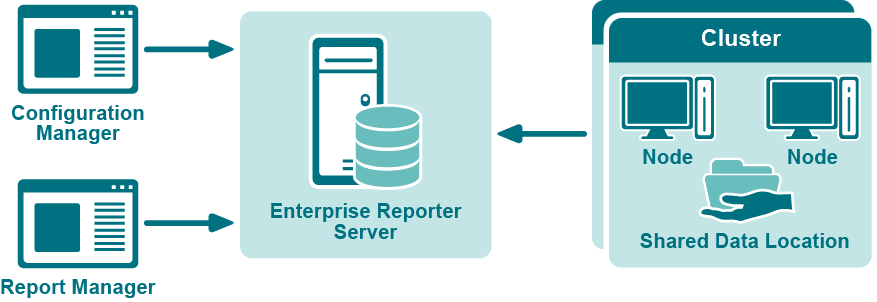For more information, see the Quest Enterprise Reporter Report Manager User Guide in the Technical Documentation.
Enterprise Reporter Architecture
Figure 2 shows how the components of Enterprise Reporter are related.

The Enterprise Reporter workflow has three distinct phases: